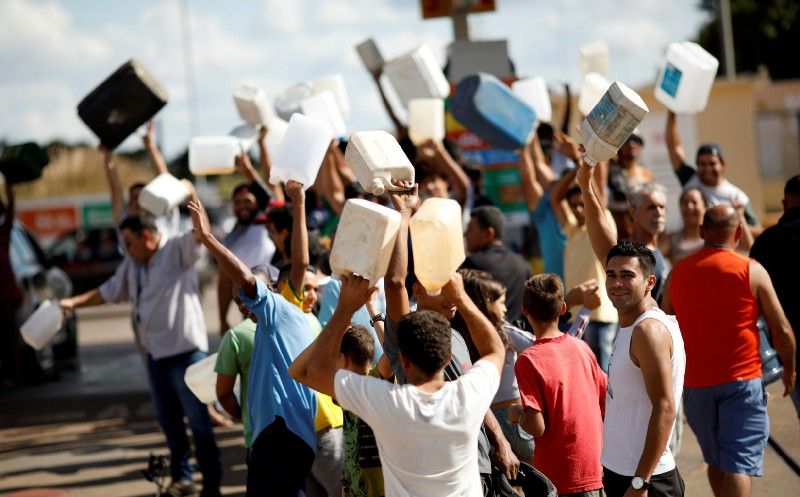Supermarket shelves lay empty, lawmakers fled a capital city running low on fuel and food, airports shut down, gas pumps ran dry, and a billion chickens clucked on the verge of death from starvation. This Mad Max scenario has played out in Latin America’s largest economy in recent days as Brazil’s truckers went on a nationwide strike over rising fuel prices, blocking hundreds of roads with their rigs.
For years, the Brazilian government subsidized fuel, but starting last year it decided to let fuel prices respond more freely to global oil prices in order to balance the books at the state oil company Petrobras. While that worked for a while, the recent surge in crude prices and a weakening currency combined to clobber Brazil’s truckers, and onto the roads they went. The government called in the army, but the truckers were unmoved. On Sunday, President Michel Temer (of the vaunted 5 percent approval rating) agreed, at a cost of close to $3 billion, to reintroduce diesel subsidies for two months.The upshot: While Brazilians were split over whether to support the paralyzing strike, furor at the government and a refusal to pay higher gasoline prices is one thing that most agree on. One reason they don’t want to pay a cent more is because they reason that a venally-corrupted political class is probably stealing their money anyway. Before you raise our taxes or cut our subsidies, they are saying, stop siphoning our money into your pockets. As Brazil hurtles towards a pivotal election defined by anti-establishment anger, the fuel apocalypse shows just how broken the country’s social contract is.
No respite: Despite the partial truce with the truckers, Brazil is slouching towards a fresh crisis this week as the country’s oil sector workers threaten to strike starting on Wednesday.
